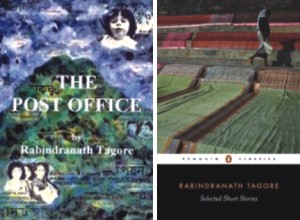|
Event
Bangla's Place in the World
Kajalie Shehreen Islam
For those who think it is strange for non-Bangalis to have an interest in the Bangla language, it must be remembered that the person often referred to as "the father of Bengali prose" for his grammars, dictionaries and translations, was himself British. William Carey was the one to show the "natives" of India the power of prose and colloquial Bangla as an effective medium of communication. Foreign interest in the language continues today, with language scholars in the UK, Germany and France working to give Bangla its due importance as a rich language and literature.
Last week, poet, scholar and translator, Dr. William Radice, renowned for his translations of Rabindranath Tagore's works, spoke on "Bangla's Global Future" at a talk organised by International University of Bangladesh's (IUB) School of Liberal Arts and Social Sciences (SLASS). Radice, a scholar of Bengali Language and Literature at the School of Oriental and African Studies (SOAS), University of London, spoke about how Bangla has changed over the decades and why, and what factors may affect its growth in the years to come.
 Radice, author of Teach Yourself Bengali talked about how Bangla has changed over his lifetime, from the late colonial period to the post-war period and on to the time of the India-Pakistan partition, when the language came to be seen as less important than Hindi and Urdu. According to Radice, whose translations include Selected Poems and Selected Short Stories of Tagore for Penguin Books, Bangla "missed the boat" and had no national status. Its provision at SOAS was reduced, while in some universities, there was no provision at all. Today, as the fifth largest language in the world, says Radice, it remains neglected. Radice, author of Teach Yourself Bengali talked about how Bangla has changed over his lifetime, from the late colonial period to the post-war period and on to the time of the India-Pakistan partition, when the language came to be seen as less important than Hindi and Urdu. According to Radice, whose translations include Selected Poems and Selected Short Stories of Tagore for Penguin Books, Bangla "missed the boat" and had no national status. Its provision at SOAS was reduced, while in some universities, there was no provision at all. Today, as the fifth largest language in the world, says Radice, it remains neglected.
In the 1960s, there were three teachers of Bengali at SOAS, and few students. Radice himself joined the department as a post-graduate student in 1972. When he was seeking admission to the department, the faculty even asked him why he wanted to learn a language which millions of people could already speak! Even today Radice is often asked about his inclination towards Bangla, and says jokingly that it must be fate or that he must have been Bangali in a previous birth. In fact, several connections and factors led to his interest in the language, and one of them was the Liberation War and genocide in Bangladesh, of which Radice believes there was very little knowledge and understanding. "I was very caught up in the war and it affected my decision to learn Bangla," he says.
Among other factors which affected his own interest in the language as well as the growth of Bangla in the UK in general, was the migration of Bangladeshis, mainly Sylhetis, to the country, many of whom opened up Indian restaurants and settled there. In his teens, Radice was also interested in the films of Satyajit Ray, though, he claims, "At that point in time, I thought of him more as an Indian than a Bangali." Later, however, Ray's growing status as the best art filmmaker in the world also led to the perception of Bangla growing. Through such works, the richness of Bangla language and culture was established within not only the educated but also the non-educated classes in Britain, where before this it was known more for its natural disasters, politics, and aid and development.
As the Bangali community grew, especially in East London, the need for learning Bangla and thus Bangla teachers, grew with it, with some schools having 100 percent students of Bangladeshi origin. Thus provision was made for the learning and teaching of Bangla and public examinations in the subject, first O Levels, then GCSE and later A Levels.
According to William Radice, the reemergence of Tagore also played a role in the growth of Bangla, for which the translator himself has taken some of the credit because of the credibility of his translations. His book opened a door, after which others took to translating Tagore's works as well, whereas, before this, some people actually thought that Tagore wrote in English! "West Bengal did much to raise awareness," says Radice, "as well as the Tagore Society in the UK."
Radice also noted that many significant intellectuals and postcolonial writers such as Nobel laureates Amartya Sen and Professor Yunus, Gayatri Chakravorty Spivak and Ashis Nandy are all Bangalis. Why this is so is an interesting question, thinks Radice, and he is actually considering writing on this.
However, believes Radice, author of Particles, Jottings, Sparks: The Collected Brief Poems of Rabindranath Tagore, there is still plenty of ignorance, such as regarding the division of Bengal and the Bengal renaissance.
The Bangali Muslim heritage, the influence of Sufism, the mingling of Muslim and Hindu cultures are not well-known, something that is important in the way Islam is seen today, says Radice.
"At SOAS," says Radice, "a transformation is at long last underway." For the longest time, he alone was at the helm of the department, from quite a young age and feeling uncomfortably responsible for a vastly rich culture, heritage and literature. In the midst of his own literary aspirations, building up the department single-handedly was a daunting task, with three to four students on average enrolling every year and no research students at all. In 1999, however, once Radice became the head of the South East Asia as well as South Asia departments, and the fact that he was a Bengali specialist, helped to raise the profile of the subject. They soon started to get many research students and now have more than all the other South Asian languages combined.
In 2005, for personal as well as strategic reasons, that is, to push the authorities into creating a new post in the department, Radice went part-time. A new Masters course in Modern Bengali as well as a new degree programme in Bengali with another subject has made Bangla actually feel like a "bibhag" (department), says Radice. "The foundations of the house are now in place," he says, "now it just has to be built, and there must be inhabitants of the house."
Towards the end of the talk, Radice, whose translation of Michael Madhushudhan Dutt's Meghnad Badh Kabya is almost complete, spoke about some of the factors that would affect or impinge upon Bangla in coming years. Global warming was said to be a significant factor, for, if the worst predictions come true, it would result in many Bangladeshis migrating to Canada and Siberia (which would then be warmer). "Though this may seem politically unlikely right now," says Radice, "it is also very unlikely that millions of people would be dying in this country and those countries would not help." As a result, countries like Canada, Siberia and Australia may have a large Bangla-speaking population then.

Dr. William Radice
The growth of cities is also a factor, believes Radice. By 2025, nearly two-thirds of the world's population will be living in urban areas, something that has never happened before. Large cities mean growth, power and wealth, and with Dhaka being among them, Bangladesh itself will grow in importance.
The need for intellectual stimulation leading to enhanced opportunities for leisure activities have been brought about by the internet, says Radice. "Latin has been revived, being taught on various websites. People have the curiosity, hunger, need and interest to learn," he says, "and with the Bangali diaspora, it may be similar for Bangla." Radice gives the example of Rabindra Sangeet, which, if available on the internet with lyrics and their translation, would attract many people. "The demand is there," he says, "the facilities have to be created. The internet is giving people this access."
The move from real to virtual travel where fewer and fewer people will be actually traveling will remove inequities and allow people to travel virtually -- such as on Google Earth -- more frequently, increasing interest in different languages.
"All this can happen," says Radice, "but not by magic, it must be made to happen." For Bangla to really take an important place, he believes that some things are essential. Among them is the dictionary, good English-to-Bangla as well as Bangla-to-English dictionaries from major international publishers such as Oxford University Press, which would actually be useful to foreigners. Better Bangla learning and teaching materials which are intellectually coherent are also necessary. Foreign scholars can play a crucial role here, believes Radice, and materials must also be available both in book form and online, because that is what is expected now. Degrees and qualifications exchange and collaboration and literary scholarship and high quality translation are also needed.
"All these need brainpower," says Radice. Most brainpower goes into science, information technology, etc., but, he says, the people at Oxford University Press, responsible for bringing out the Oxford Dictionary, have outstanding intellectual power. Radice ended his talk by throwing at the audience the question of how to get some people with the best brains to take up this work.
Though language scholarship may not be the most economically viable profession, its importance in keeping alive a language and culture and helping them to gain global exposure is obvious. Without language, a culture ceases to exist, and scholarly interest in languages helps them to grow. Though Bangla missed the boat the first time around, with people like Dr. William Radice, who have dedicated themselves to languages not even their own, it can have a significant future. The responsibility lies with not only foreign scholars, but also on Bangalis themselves, to be reachable and to reach out to the world in order to give their language its rightful place. Copyright
(R) thedailystar.net 2007 |
